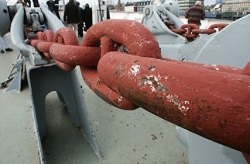 If you are employed in the maritime industry, working on or adjacent to the navigable waters of the United States, you have a right to seek compensation for work-related injuries under the provisions of the Longshoremen’s and Harbor Workers’ Compensation Act, with some exceptions (see our blog on the coverage provided by the LHWCA). The LHWCA provides coverage for medical expenses, lost wages and vocational rehabilitation, if necessary.
If you are employed in the maritime industry, working on or adjacent to the navigable waters of the United States, you have a right to seek compensation for work-related injuries under the provisions of the Longshoremen’s and Harbor Workers’ Compensation Act, with some exceptions (see our blog on the coverage provided by the LHWCA). The LHWCA provides coverage for medical expenses, lost wages and vocational rehabilitation, if necessary.
In 1953, Congress extended the coverage offered by the LHWCA to provide benefits to workers injured in the exploration a development of natural resources along the Outer Continental Shelf.
The Provisions of the Outer Continental Shelf Lands Act (OCSLA)
The OCSLA specifically states that compensation is payable under the Longshoremen’s Act for any injury or death arising out of natural resource exploration and development in what is known as the Outer Continental Shelf, defined in the act to include the “lands beneath navigable waters…extending from the coast line up to three geographic miles into the Atlantic or Pacific Ocean, and three marine leagues into the Gulf of Mexico.
The Outer Continental Shelf Lands Act is most often used by oil rig employees to pursue workers’ compensation for injuries sustained in blowouts, fires, spillage and other accidents. Under the provisions of the law, fixed oil rig platforms are deemed to be islands of the states contiguous to them. A worker injured on an oil rig has the right to seek compensation under the LHWCA. Other workers typically covered by the provisions of the Outer Continental Shelf Lands Act include builders, breakers and repairmen of ships, as well as longshoremen and harbor workers.
As with the LHWCA, the Outer Continental Shelf Lands Act does not provide coverage for the master or any member of a crew of any vessel, or any employee of a state or the federal government.
Contact Uliase & Uliase
For an appointment with an experienced New Jersey federal workers’ compensation lawyer, contact us online or call our office at 856-310-9002. We meet with clients weekdays between 9 a.m. and 5 p.m. We offer a free consultation for injured workers.

